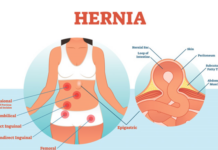Menopause is an important phase in a woman’s lifetime, signaling the end of her reproductive years. This natural biological phenomenon is accompanied by hormonal changes, which can result in a wide range of physical, emotional, or mental symptoms. The menopause experience is universal, but each woman’s journey will be unique. Comprehensive Gynecological Care New Jersey offers personalized care and management strategies tailored for each individual.
Comprehending Menopause: Hormonal Changes
Menopause usually occurs between 45-55, or when a female hasn’t menstruated for 12 consecutive calendar months. The transition to menopause (also known as perimenopause) can begin many years earlier. It is characterized mostly by fluctuating levels of estrogen and progesterone.
These hormonal shifts can lead to a number of symptoms.
- Hot flashes or night sweats?
- Feelings of irritability and mood swings
- Unregular Periods
- Vaginal dryness
- Sleep disturbances
- Weight gain and slowed metabolic rate
- Reduced bone density
The changes that occur are not only natural but can also have an impact on the quality of life for women. To manage these symptoms, you should consult a comprehensive gynecological care specialist.
The Role Of Gynecological Treatment During Menopause
Gynecologists have a crucial role in helping women navigate menopause. They can diagnose perimenopause, provide tailored treatment plans, and ensure a holistic management of symptoms.
- Bone Health And Osteoporosis Prevention
Osteoporosis can be exacerbated by a decline in estrogen levels that occurs during menopause. Bone density scans are necessary, as well as preventive measures, including calcium, vitamin D, and prescription medications. The gynecologist makes sure that they are included in your care.
- Sexual Health And The Law
Changes in hormones during menopause are known to cause vaginal irritation and discomfort, affecting sexual health. Treatments such vaginal moisturizing products, lubricants, and localized estrogen therapy may alleviate these symptoms, allowing women to regain comfort and confidence.
- Cardiovascular Health Assessment
A decrease in estrogen can also increase the chance of heart disease. Menopausal doctors monitor cardiovascular health and can provide advice about heart-healthy behaviors and treatments.
Emotional Health And Mental Well-Being
Menopause doesn’t only affect physical health; it also impacts mental and psychological well-being. Hormonal fluctuations often cause mood swings as well as anxiety and depression. Gynecologists who offer complementary gynecological services will often work together with mental health specialists to address such concerns.
Some of the treatments include:
- Cognitive-behavioral Therapy (CBT) for mood Management
- Mindfulness techniques that reduce stress
- If needed, medications can be prescribed for anxiety or depression.
Support groups and education resources can also be valuable for connecting with others experiencing similar issues and fostering a feeling of community and understanding.
Menopause Management Holistic Treatment
Menopause symptoms may be managed with holistic treatments in addition to medical ones. Gynecologists recommend:
- Nutrition: A rich diet of fruits, vegetables, lean proteins, and whole grains supports hormonal balance and overall well-being.
- Exercise: Regular activity improves mood and helps to maintain a healthy weight.
- Alternative therapies: Techniques such as acupuncture, yoga, and herbal supplementation may be helpful for some women.
When To Seek Comprehensive Gynecological Care?
It’s a normal process, but that doesn’t mean you have to endure the symptoms alone. If any of these symptoms are present, it’s important to seek out a provider that specializes in comprehensive gynecological treatment.
- Sleep disturbances caused by severe night sweats and hot flashes
- Depressive moods or persistent mood swings
- Vaginal dryness and pain during intercourse
- Concerns about cardiovascular or bone health
- Problems with weight management or other physical changes
Your gynecologist will provide you with an in-depth evaluation, suggest appropriate tests, and guide you on the best treatment options for improving your quality of life.
Conclusion
The end of menopause can be a sad time, but it is also the beginning of a new phase of empowerment. By seeking comprehensive gynecological care for expert guidance, women will be able to access personalized solutions and gain confidence in navigating this transition. Gynecologists can help women maintain their health and well-being throughout menopause by providing symptom management, preventive care, and emotional support. Menopause symptoms should not hold you back. Speak to your trusted gynecologist now and start the process of reclaiming comfort and vitality.




